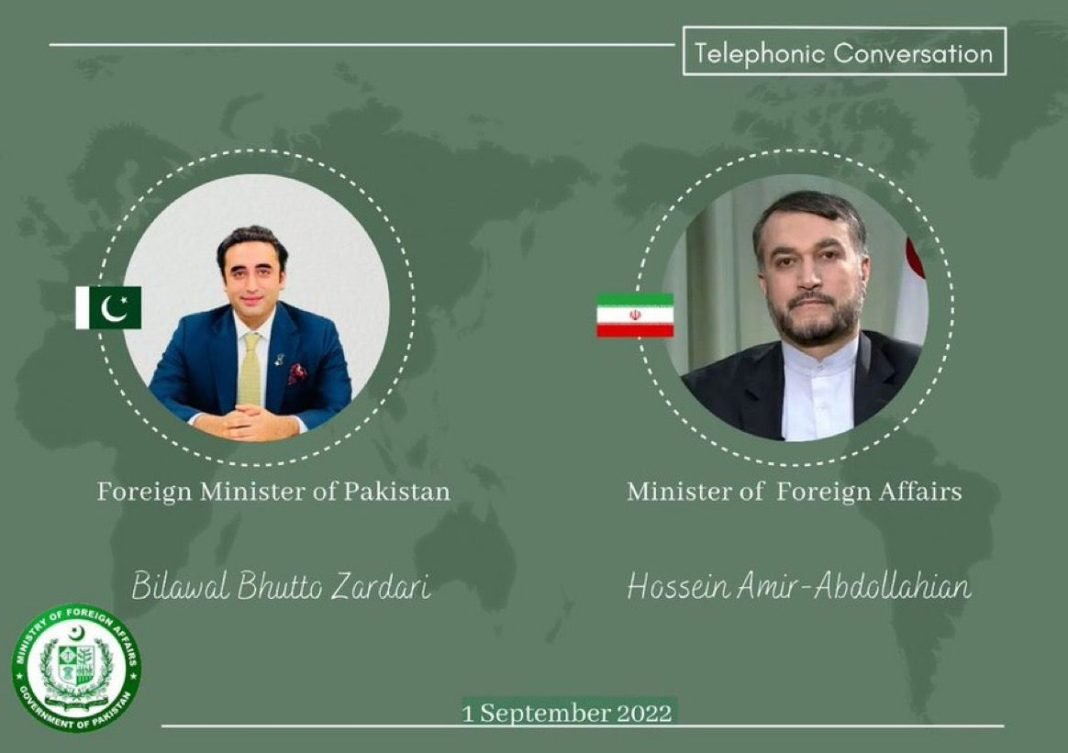Islamabad, 1 September 2022 (TDI): The Foreign Minister of Pakistan, Bilawal Bhutto Zardari, received a telephone call from the Foreign Minister of Iran, Dr. Hossein Amir Abdollahian on Thursday.
During the call, Foreign Minister Bilawal Bhutto Zardari shared that Pakistan had been battling one of the most severe cycles of torrential monsoon weather, which had resulted in the loss of lives, livelihood, and extensive damage to infrastructure. As a result, the delivery of assistance and relocation of affectees was severely limited.
Highlighting the Government’s efforts, the Foreign Minister informed that in addition to financial support, food packs, shelter items including tents, and Water, Sanitation, and Hygiene (WASH) supplies were also being provided.
Acknowledging the international community’s support, Foreign Minister Bilawal Bhutto Zardari highlighted that Pakistan launched the “UN Flash Appeal” for Flood Response Plan on 30 August 2022, which prioritized focused interventions in specific areas.
Thank you FM @Amirabdolahian for call and relief assist. by Iran on floods in Pakistan. Briefed on extensive damages due to torrential monsoon weather. Looked forward to working with int’l community for the success of UN Flash Appeal. Discussed issues of bilateral interests pic.twitter.com/xTxp4C9ofk
— BilawalBhuttoZardari (@BBhuttoZardari) September 1, 2022
Foreign Minister of Iran, Dr. Hossein Amir Abdollahian conveyed condolences on the loss of lives and material damage due to the floods and assured to assist in the provision of relief.
In the bilateral context, the Foreign Minister stated that the recently concluded session of the Joint Economic Commission had helped further strengthen cooperation in multiple sectors. Recalling his visit to Tehran in June 2022, the Foreign Minister reiterated his invitation to Dr. Hossein Amir Abdollahian to visit Pakistan.
Floods in Pakistan:
In Pakistan, floods have claimed the lives of at least 1,191 people since June 2022, including 380 children.
Heavy monsoon rains that were unusually heavy and glaciers that began to melt after a severe heat wave contributed to the floods, which are all connected to climate change.
Since the floods in South Asia in 2017, it has caused the most fatalities worldwide and is regarded as the worst flood in the history of the nation.
Due to the flooding, Pakistan proclaimed a state of emergency on August 25. The nation’s one-third population was submerged by August 29, according to Pakistan’s minister of climate change, affecting 33 million people.






